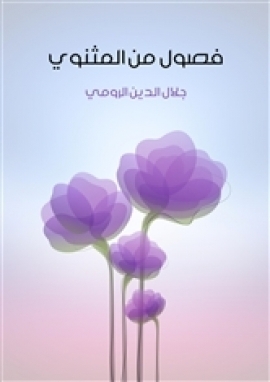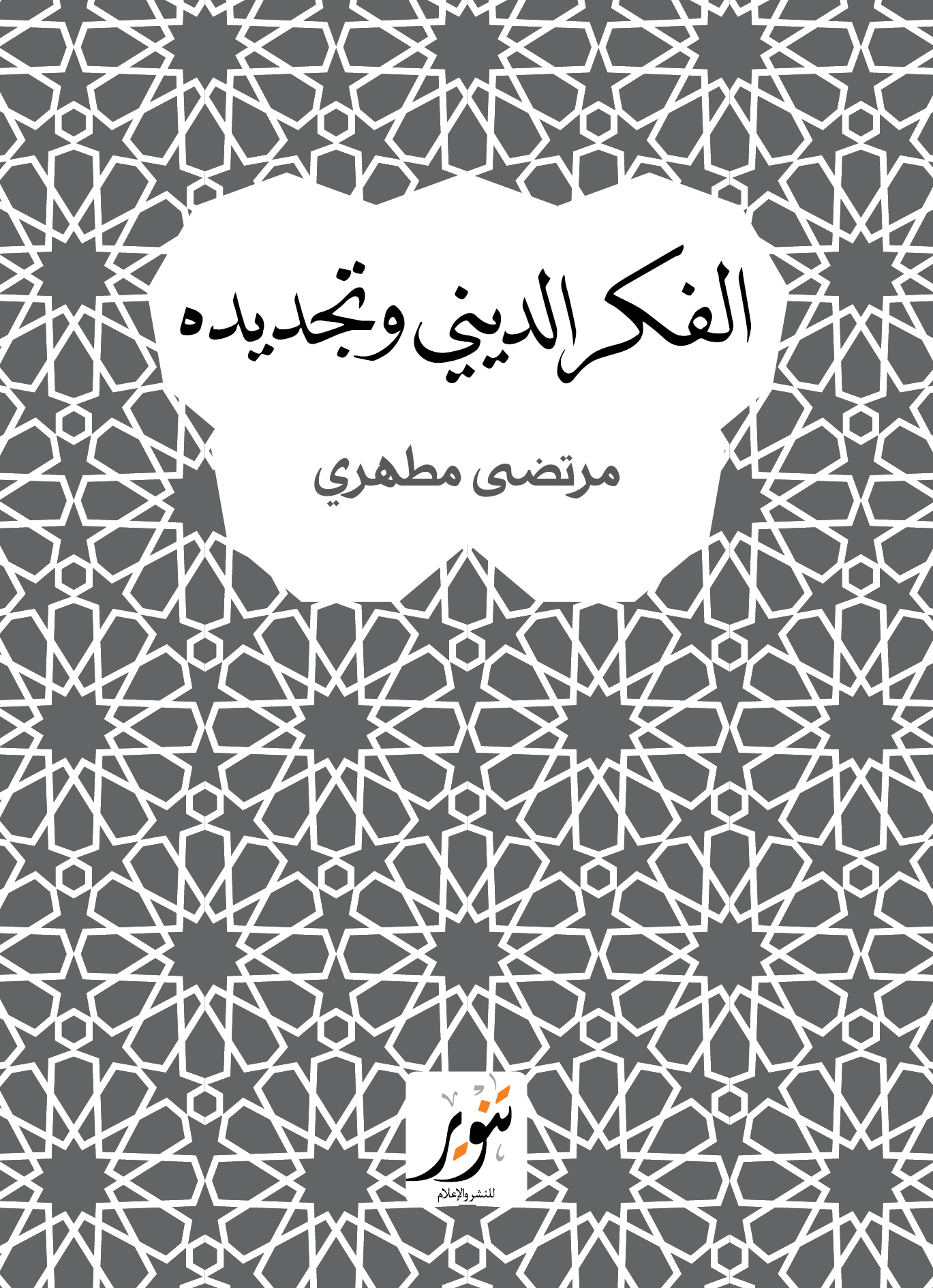


Books in series
انسان و ایمان
2008

الإمداد الغيبي في حياة البشرية
2011

ثم فاح النور من يديك
2011

مولانا جلال الدين الرومي
2018

كل يوم
2018

فصول من المثنوي
1946

الفكر الديني وتجديده
2023
Authors


Sufism inspired writings of Persian poet and mystic Jalal ad-Din Muhammad ar-Rumi; these writings express the longing of the soul for union with the divine. Jalāl ad-Dīn Muhammad Rūmī - also known as Jalāl ad-Dīn Muhammad Balkhī, Mevlânâ/Mawlānā (مولانا, "our master"), Mevlevî/Mawlawī (مولوی, "my master") and more popularly simply as Rumi - was a 13th-century Persian poet, jurist, Islamic scholar, theologian and Sufi mystic who lived in Konya, a city of Ottoman Empire (Today's Turkey). His poems have been widely translated into many of the world's languages, and he has been described as the most popular poet and the best-selling poet in the United States. His poetry has influenced Persian literature, but also Turkish, Ottoman Turkish, Azerbaijani, Punjabi, Hindi, and Urdu, as well as the literature of some other Turkic, Iranian, and Indo-Aryan languages including Chagatai, Pashto, and Bengali. Due to quarrels between different dynasties in Khorāṣān, opposition to the Khwarizmid Shahs who were considered devious by his father, Bahā ud-Dīn Wālad or fear of the impending Mongol cataclysm, his father decided to migrate westwards, eventually settling in the Anatolian city Konya, where he lived most of his life, composed one of the crowning glories of Persian literature, and profoundly affected the culture of the area. When his father died, Rumi, aged 25, inherited his position as the head of an Islamic school. One of Baha' ud-Din's students, Sayyed Burhan ud-Din Muhaqqiq Termazi, continued to train Rumi in the Shariah as well as the Tariqa, especially that of Rumi's father. For nine years, Rumi practised Sufism as a disciple of Burhan ud-Din until the latter died in 1240 or 1241. Rumi's public life then began: he became an Islamic Jurist, issuing fatwas and giving sermons in the mosques of Konya. He also served as a Molvi (Islamic teacher) and taught his adherents in the madrassa. During this period, Rumi also travelled to Damascus and is said to have spent four years there. It was his meeting with the dervish Shams-e Tabrizi on 15 November 1244 that completely changed his life. From an accomplished teacher and jurist, Rumi was transformed into an ascetic. On the night of 5 December 1248, as Rumi and Shams were talking, Shams was called to the back door. He went out, never to be seen again. Rumi's love for, and his bereavement at the death of, Shams found their expression in an outpouring of lyric poems, Divan-e Shams-e Tabrizi. He himself went out searching for Shams and journeyed again to Damascus. Rumi found another companion in Salaḥ ud-Din-e Zarkub, a goldsmith. After Salah ud-Din's death, Rumi's scribe and favourite student, Hussam-e Chalabi, assumed the role of Rumi's companion. Hussam implored Rumi to write more. Rumi spent the next 12 years of his life in Anatolia dictating the six volumes of this masterwork, the Masnavi, to Hussam. In December 1273, Rumi fell ill and died on the 17th of December in Konya.

مرتضی مطهری (۱۲۹۸- ۱۳۵۸ش) مشهور به شهید مطهری یا استاد مطهری، فیلسوف، مجتهد، خطیب و نویسنده شیعه در قرن جهاردهم هجری و از مهمترین شاگردان علامه طباطبائی و امام خمینی بود. مطهری از افراد تأثیرگذار و از رهبران فکری انقلاب اسلامی ایران به شمار میرود. مرتضی مطهری، از سال ۱۳۲۵ش آغاز به تألیف آثاری در زمینههای مختلف فلسفی، اجتماعی، اخلاقی، فقهی و تاریخی کرد و بیش از ۷۰ اثر از او انتشار یافته است. برخی از آثار او در زمان حیات و برخی دیگر پس از درگذشت وی توسط انتشارات صدرا چاپ شده است. سخنرانیها و درسهای مطهری هم در مجلدهای مختلف چاپ و منتشر شده است. علاوه بر موارد ذکر شده، نزدیک به سی هزار برگ یادداشت و فیش تحقیقی نیز از مطهری باقی مانده است. «مجموعه آثار شهید مطهری»، مجموعهای ۲۸ جلدی حاوی تمامی آثار منتشر شده از وی است که کتابهای با موضوعات مشابه، در مجلدات پیاپی جمعآوری شده است. این آثار به تفکیک موضوع عبارتند از: اصول عقاید، از جلد یک تا چهار: حاوی آثاری مانند عدل الهی، علل گرایش به مادیگری، جهانبینی توحیدی، جامعه و تاریخ، ولاها و ولایتها، مدیریت و رهبری در اسلام، و توحید. فلسفه، از جلد پنج تا ۱۳: حاوی آثاری مانند سیر فلسفه در اسلام، شرح منظومه، اصول فلسفه و روش رئالیسم، مسئله شناخت، و نقدی بر مارکسیسم. تاریخ، جلد ۱۴ و ۱۵: حاوی کتاب خدمات متقابل اسلام و ایران، و همچنین فلسفه تاریخ. سیره معصومین، از جلد ۱۶ تا ۱۸: حاوی آثاری از جمله سیری در سیره نبوی، جاذبه و دافعه علی(ع)، سیری در نهجالبلاغه، صلح امام حسن(ع)، حماسه حسینی، و داستان راستان. فقه و حقوق، از جلد ۱۹ تا ۲۱: حاوی آثاری از جمله نظام حقوق زن در اسلام، مسئله حجاب، اخلاق جنسی، امر به معروف و نهی از منکر، نظری به نظام اقتصادی اسلام، و اسلام و نیازهای زمان. اخلاق و عرفان، جلد ۲۲ و ۲۳: حاوی آثاری از جمله حکمت عملی، فلسفه اخلاق، تعلیم و تربیت در اسلام، آزادی معنوی، احترام حقوق و تحقیر دنیا، و دعا. اجتماعی-سیاسی، جلد ۲۴ و ۲۵: حاوی آثاری از جمله نهضتهای اسلامی در صد ساله اخیر، آینده انقلاب اسلامی ایران، آزادی عقیده، مشکل اساسی در سازمان روحانیت، رهبری نسل جوان، و روابط بینالملل اسلامی. تفسیر، جلد ۲۶ تا ۲۸: حاوی کتاب آشنایی با قرآن.